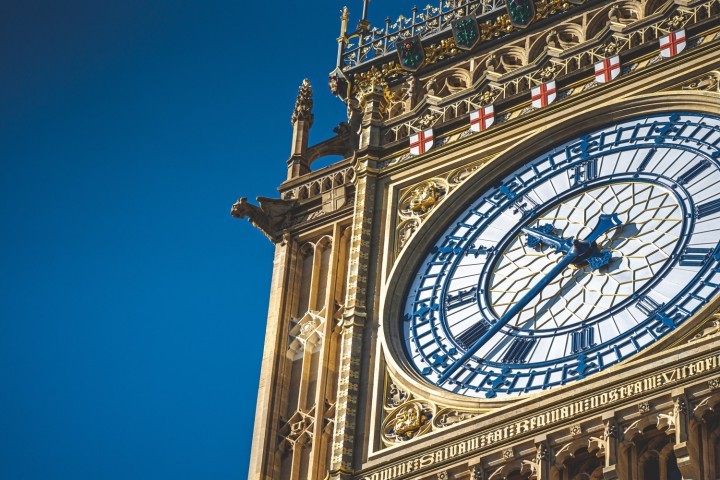Chancellor Rachel Reeves confirmed a £2.2bn defence spending boost to meet the challenges of a "changing world" in her Spring Statement this afternoon.
She pledged to “boost Britain’s defence industry and to make the UK a defence industrial superpower”.
As widely predicted, there were no further tax increases or surprises for businesses, who were hit hard by the chancellor’s autumn Budget.
She told MPs: “As I promised in the autumn, this statement does not contain any further tax increases.”
The chancellor said that defence spending will increase to 2.5 per cent of GDP from April 2027, by reducing overseas aid to 0.3 per cent of gross national income.
Confirming an additional £2.2bn in spending for the Ministry of Defence next year, she said it was necessary because of the need to move quickly in a "changing world".
She said that she wanted the "whole country" to feel the benefits of the increase.
And she added that a minimum of 10 per cent of the Ministry of Defence's equipment budget will be spent on new technologies including drones and AI-enabled technology.
Ms Reeves told MPs: "We will establish a protected budget of £400m within the MOD - a budget that will rise over time for UK defence innovation with a clear mandate to bring innovative technology to the frontline at speed.
"We will reform our broken defence procurement system, making it quicker, more agile and more streamlined, and giving small businesses across the UK, better access to MOD contracts which is something welcomed by the Federation of Small Businesses."
She also spoke of a "Plan for Barrow" – a town "at the heart" of the country's national security - providing £200m and supporting the creation of thousands of jobs.
The chancellor told the Commons: "We will provide £2bn of increased capacity for UK export finance to provide loans for overseas buyers of UK defence goods and services, because I want to do more with our defence budgets so we can buy and make and sell things here in Britain.
"Giving further opportunities for our world leading defence companies and those who work in them to grow and create jobs here in Britain as military spending rightly increases all across Europe."
She confirmed the government would be working to "establish a new Defence Growth Board" to put "defence at the heart of our modern industrial strategy to drive innovation that can deliver huge benefit back into the British economy. That is how we make our country a defence industrial superpower.
"This additional investment is not just about increasing our national security, but increasing our economic security, too."
The chancellor said the government was also taking forward work to “significantly reduce the costs of running government” by 15 per cent, or £2bn, by the end of the decade. She said that the state can be “leaner and more agile”.
She also confirmed that "the OBR has cut its growth forecast for this year from two per cent to one per cent".
Ms Reeves added: “I am not satisfied with these numbers, and that is why we on this side of the house are serious about taking the action needed to grow our economy, backing the builders, not the blockers, with a third runway at Heathrow Airport … increasing investment with reforms to our pension system and a new national wealth fund.
“That is a serious plan for growth. That is a serious plan to improve living standards.”
And she also revealed that growth over the following few years will be faster than expected by the OBR last autumn.
On education, Ms Reeves highlighted the education secretary’s announcement of more than £600m to train up to 60,000 construction workers.
This includes 10 new technical excellence colleges across every region of the country, she told MPs.
The chancellor said that the OBR had assessed that Labour's planning reforms "will lead to housebuilding reaching a 40 year high".
Changes to the national planning policy alone, she said, will help build more than 1.3 million homes in the UK within the next five years.
This will take Labour within "touching distance" of its promise to build 1.5 million homes in England this parliament, she added.
She said the government's plan to get Britain building will drive growth in the economy and put more money in people’s pockets.
Ms Reeves also said the OBR estimated the government's welfare cuts would save £3.4bn.
She also told MPs it was not right people were evading tax. The autumn Budget contained measures to raise £6.5bn by a crackdown on tax avoidance and evasion by the end of the forecast period.
The chancellor said new measures she was announcing today will increase this by £1bn.
The OBR said the chancellor had restored “headroom” - how much leeway a government has to cut taxes or increase spending while still sticking to self-imposed rules.
It said the £9.9bn it laid out in the autumn Budget would have been more than wiped out by interest payments on government debt, leading to a £4.1bn deficit by 2029/30.
But policy changes, including welfare reforms and day-to-day departmental spending reductions, “restore it to the £10bn surplus the chancellor had in October”.
However, it added that borrowing and debt are expected to be higher than previously forecast.
Enjoyed this? Read more from Ged Henderson























